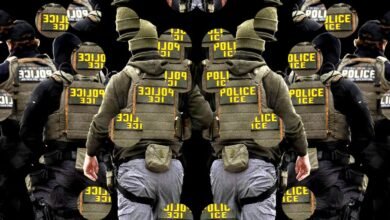US Government Secretly Collecting American DNA for Years

▼ Summary
– CBP has been collecting DNA from US citizens, including minors, without congressional authorization and entering it into the FBI’s CODIS crime database.
– Government data shows nearly 2,000 citizens had their DNA collected between 2020 and 2024, with an estimated 95 being minors as young as 14.
– The DNA was collected from individuals not charged with crimes, with agents sometimes leaving the “charges” field blank or citing civil penalties, which violates federal law.
– Experts and critics describe the program as operating outside legal bounds, giving CBP broad discretion and subjecting individuals to potential lifelong law enforcement scrutiny.
– A Georgetown Law Center director states the data shows CBP is “flagrantly violating the law” by taking DNA from citizens without justification.
For years, a covert operation has seen Customs and Border Protection agents collecting DNA from American citizens, including minors, and submitting those samples to an FBI criminal database. This genetic surveillance initiative, which lacks congressional authorization for use on citizens, children, or individuals in civil detention, represents a significant expansion of government data collection practices.
Newly analyzed government records reveal that the Department of Homeland Security, the parent agency of CBP, gathered genetic material from close to 2,000 U.S. citizens between 2020 and 2024. These samples were entered into CODIS, the FBI’s national system used primarily for criminal investigations. Among those whose DNA was taken, approximately 95 were minors, some just 14 years old. The data includes numerous individuals never formally charged with any crime, and in dozens of cases, the field listing charges was left completely blank. In other instances, CBP officers cited civil penalties as grounds for the DNA swabs, despite federal law restricting such collection to criminal arrests.
Legal and privacy experts suggest these actions indicate a program operating without proper statutory boundaries or oversight. CBP officers appear to wield considerable discretion in deciding when to collect genetic material from Americans, funneling it into a law enforcement database originally intended in part for convicted offenders. Critics emphasize the long-term consequences, warning that inclusion in CODIS could subject individuals to lifelong heightened scrutiny by U.S. law enforcement.
“The spreadsheets reveal a deeply troubling narrative,” stated Stevie Glaberson, director of research and advocacy at Georgetown Law’s Center on Privacy & Technology. “They document DNA being taken from people ranging from young children to seniors, and our latest analysis confirms CBP is openly flouting the law by collecting genetic information from citizens without legal justification.” The Department of Homeland Security has not provided any response to requests for comment on these findings.
(Source: Ars Technica)





